All set for tomorrow’s symposium with Portuguese Secretary of State João Costa and a great line-up of speakers! // Tudo a postos para o nosso simpósio sobre o futuro do português. É já amanhã!
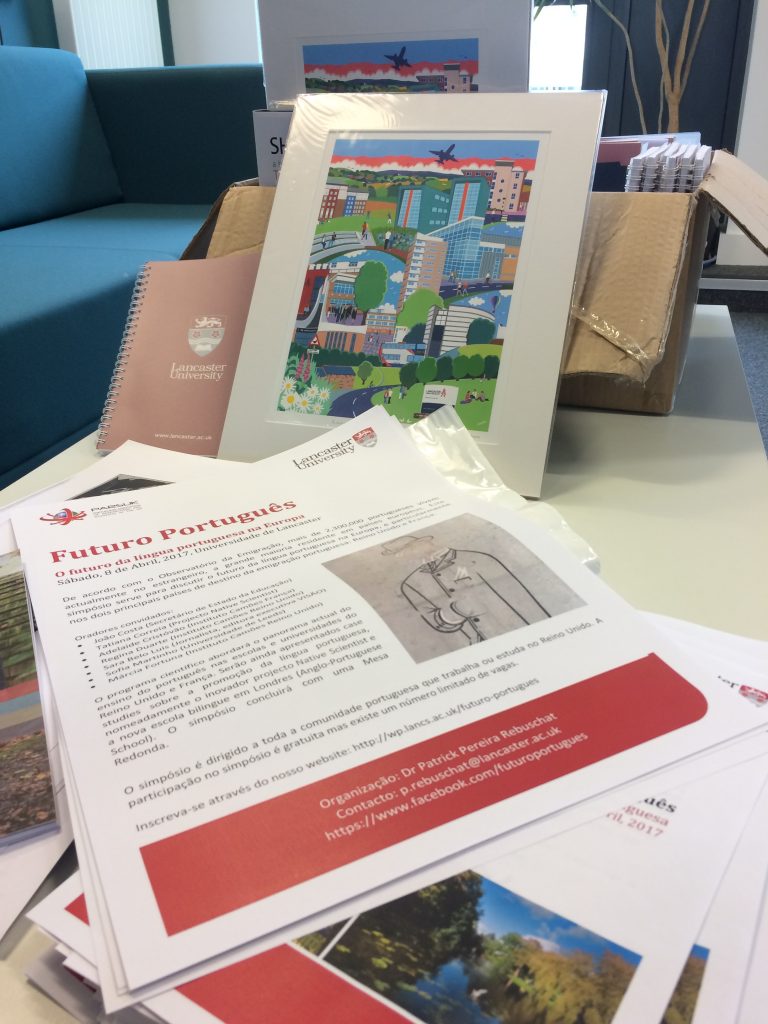
Professor of Linguistics and Cognitive Science
All set for tomorrow’s symposium with Portuguese Secretary of State João Costa and a great line-up of speakers! // Tudo a postos para o nosso simpósio sobre o futuro do português. É já amanhã!

Great summary of the Portuguese language symposium I am organizing, written by journalist Bruno Manteigas for Lusa Press Agency. Provides nice overview of the objectives, and has a few lines on my background and why I believe in bilingualism and heritage language education.
Simpósio em universidade britânica de Lancaster discute futuro da língua portuguesa
Londres, 01 abr (Lusa) – Um painel de especialistas incluindo o secretário de Estado da Educação, João Costa, vai discutir o futuro do Português na Europa enquanto lingua de herança num simpósio na universidade britânica de Lancaster a 08 de abril.
O simpósio pretende abordar a situação sobretudo nos dois principais países de destino da emigração portuguesa, Reino Unido e França, e analisar o panorama atual do ensino do português nas escolas e universidades nestes dois países, tendências e desafios.
O simpósio “Futuro Português – O futuro da língua portuguesa na Europa” terá como oradores, entre outros, a cofundadora e diretora do projeto Native Scientist, a Coordenadora do Ensino de Português no Reino Unido, Regina Duarte, e a homóloga em França, Adelaide Cristovão, a jornalista Sara Belo Luís, e a leitora de Português na Universidade de Leeds Sofia Martinho.
“A ideia é reunir pessoas com interesse no futuro do português como língua de herança. O Observatório da Emigração estima que vivem atualmente no estrangeiro mais de 2,3 milhões de portugueses, que têm filhos e filhas. A questão perene é: será que este filhos vão falar português?”, disse o organizador da inciativa, Patrick Rebuschat, professor na Universidade de Lancaster.
O uso da língua materna em casa “muitas vezes é limitado” e diferente do que se ensina em Portugal, nomeadamente História e Geografia, pelo que várias gerações de lusodescendentes têm beneficiado da rede de ensino no estrangeiro financiada pelo Estado português.
“Eu beneficiei disso. Eu falo português, leio e escrevo porque eu sou um produto dessa rede de ensino. Eu nasci na Alemanha e cresci bilingue português-alemão porque na cidade onde eu vivia, em Wolfsburg, existe uma grade comunidade portuguesa. A partir dos seis anos entrei na escola alemã e também à tarde, duas vezes por semana, quatro horas ao todo, [tive aulas de português]”, descreveu o académico, que é filho de pai alemão e mãe portuguesa.
Rebuschat conta que continuou até aos 17 anos, mas, do grupo incial, só permaneciam ele, o irmão e outra rapariga.
“Gostava de perceber qual é a motivação e atitude dos pais e alunos em relação ao português”, afirmou este especialista em bilinguismo e aprendizagem de línguas, que pretende aprofundar esta via de investigação.
No seu caso pessoal, Patrick Rebuschat mudou-se para Portugal ainda adolescente para completar os estudos secundários e depois a licenciatura, o que fez sem dificuldades de adaptação à língua e ao sistema nacional.
Posteriormente, fez carreira como linguista no Reino Unido, Alemanha e EUA.
“O português como língua de herança é uma rede importante não só para os filhos dos emigrantes, para crescerem bilingues e terem uma ligação a Portugal, como para o país, porque [os lusodescendentes] são vastíssimo recurso humano a viver no estrangeiro”, vincou.
O impacto do Brexit será também um tema de debate no evento, onde serão apresentados dois casos exemplares de promoção da língua portuguesa no Reino Unido, a Native Scientist, que faz divulgação de ciência junto de crianças de origem portuguesa, e a Anglo-Portuguese School, uma escola bilingue em Londres que prevê iniciar o funcionamento em Londres no próximo ano letivo.
BM//PJA

Greatly enjoyed hosting a wonderful group of colleagues and students from Ghent University for the inaugural Lancaster-Ghent symposium. The symposium is part of our new research and teaching partnership (for more info please see our website).
The first event focused on “Discourse and Media”. A great thank you to our invited speakers for their excellent presentations and to our delegates for their thoughtful comments and discussion. The symposium clearly indicated many fruitful avenues for future research and teaching collaborations, and it will be exciting to strengthen the links between our institutions over the coming years.
Invited speakers:
The next event takes place next month! The second Lancaster-Ghent symposium will focus on “Multilingualism: Learning, processing, teaching and testing” and take place on April 18-19, 2017. Both events are funded by FASS Internationalization Fund, acknowledged with gratitude.
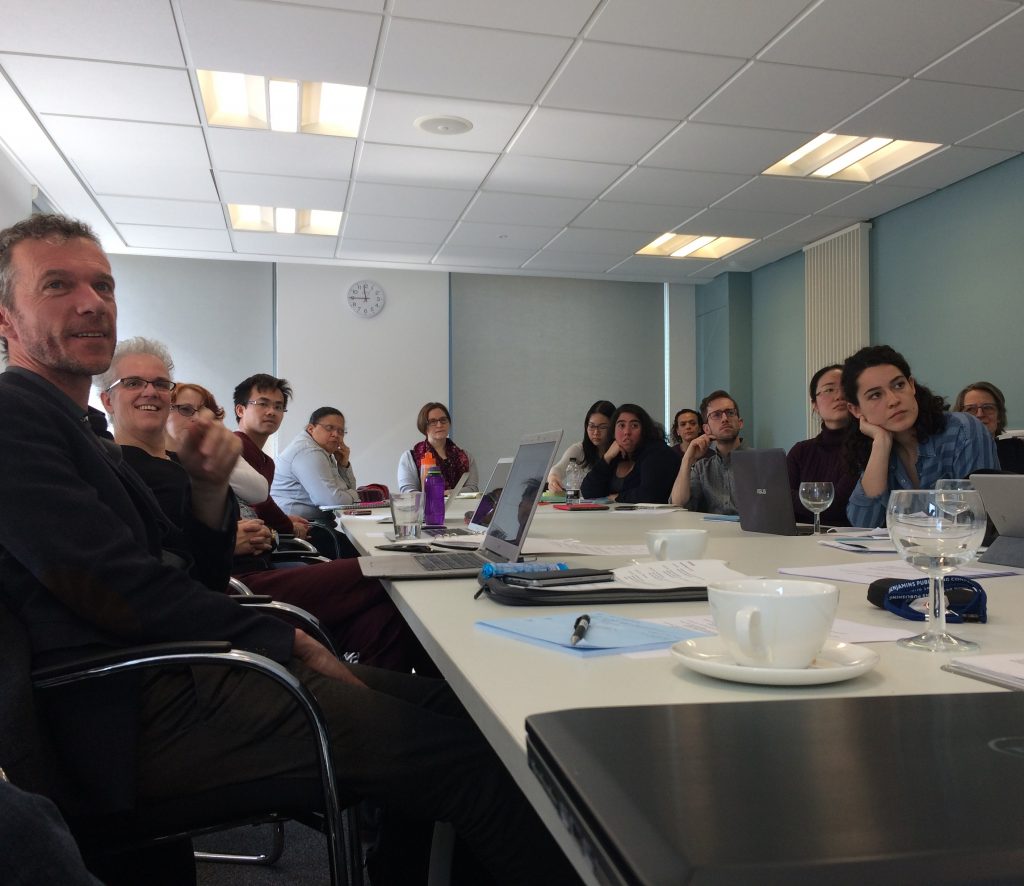
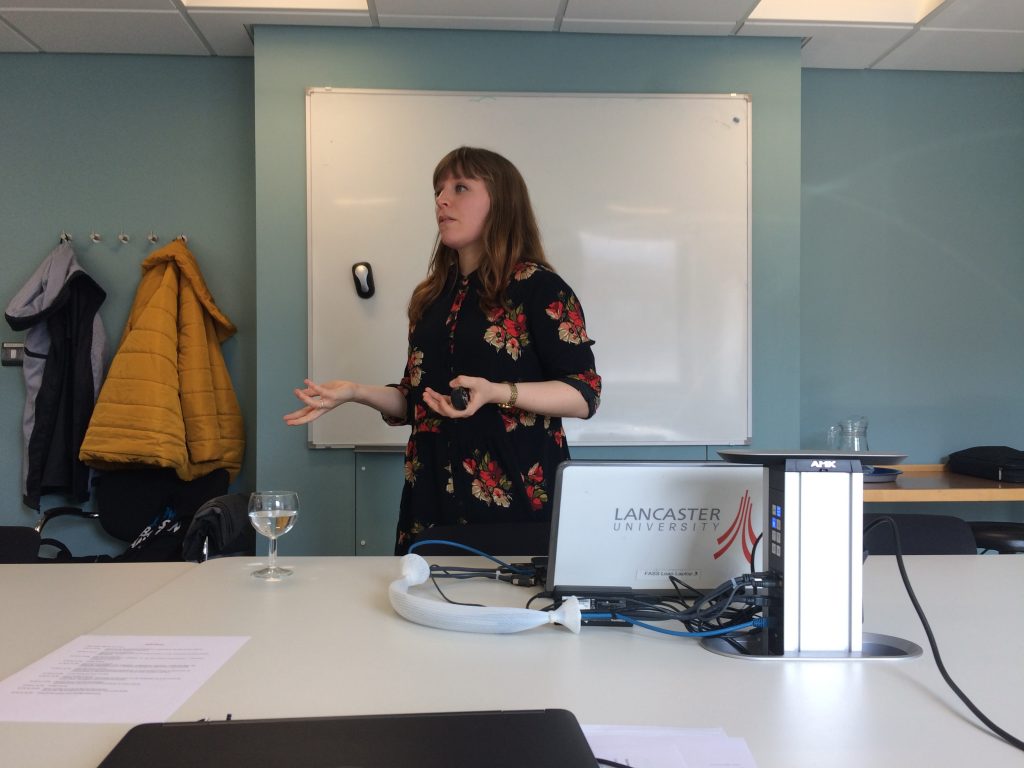
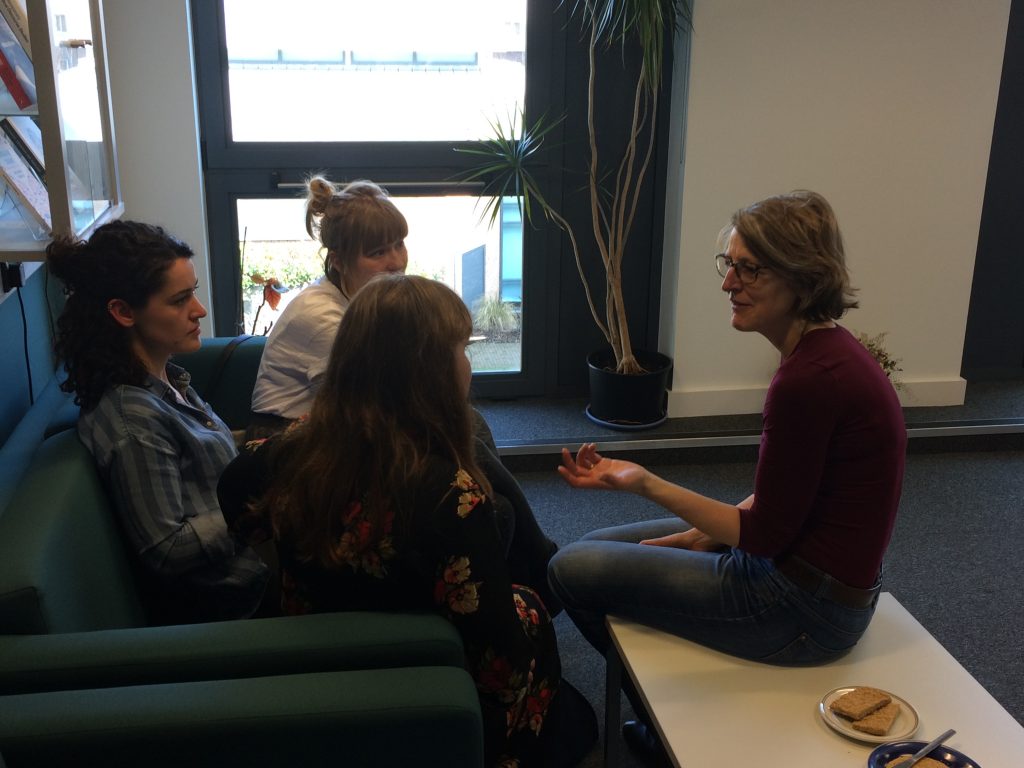
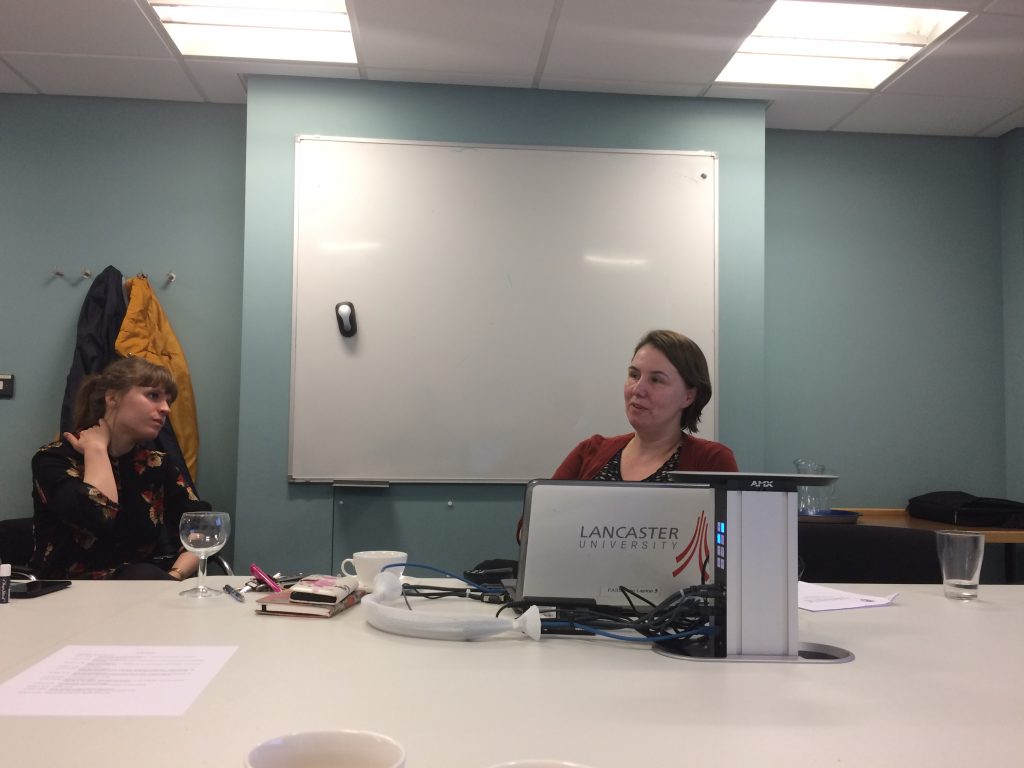
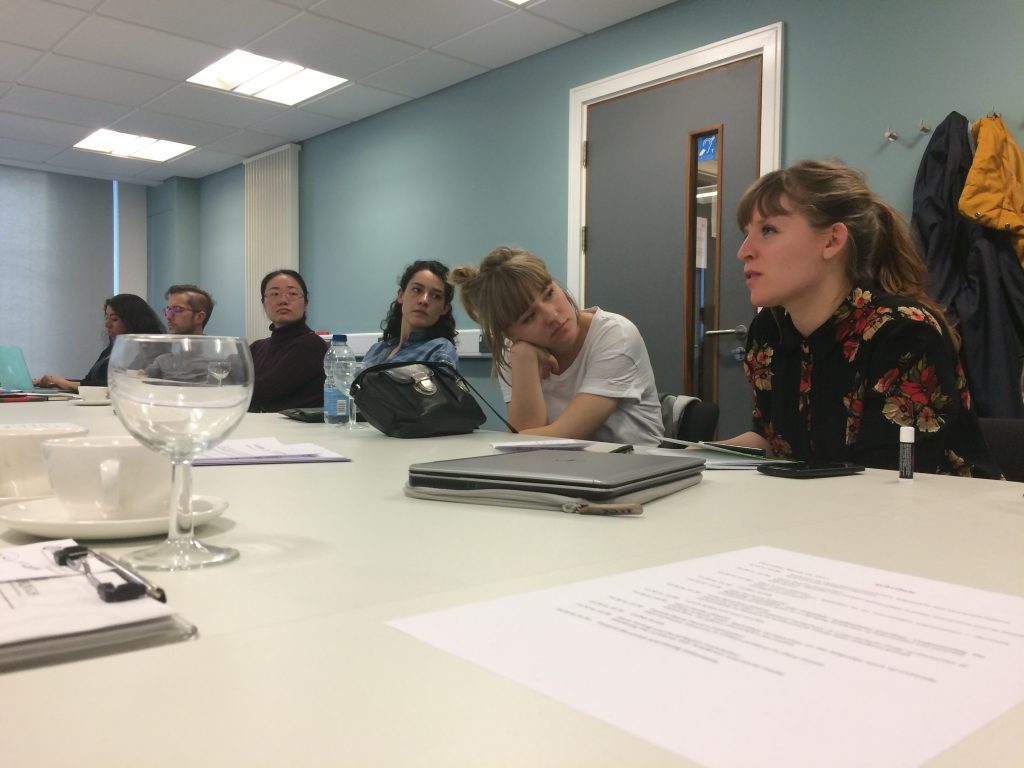
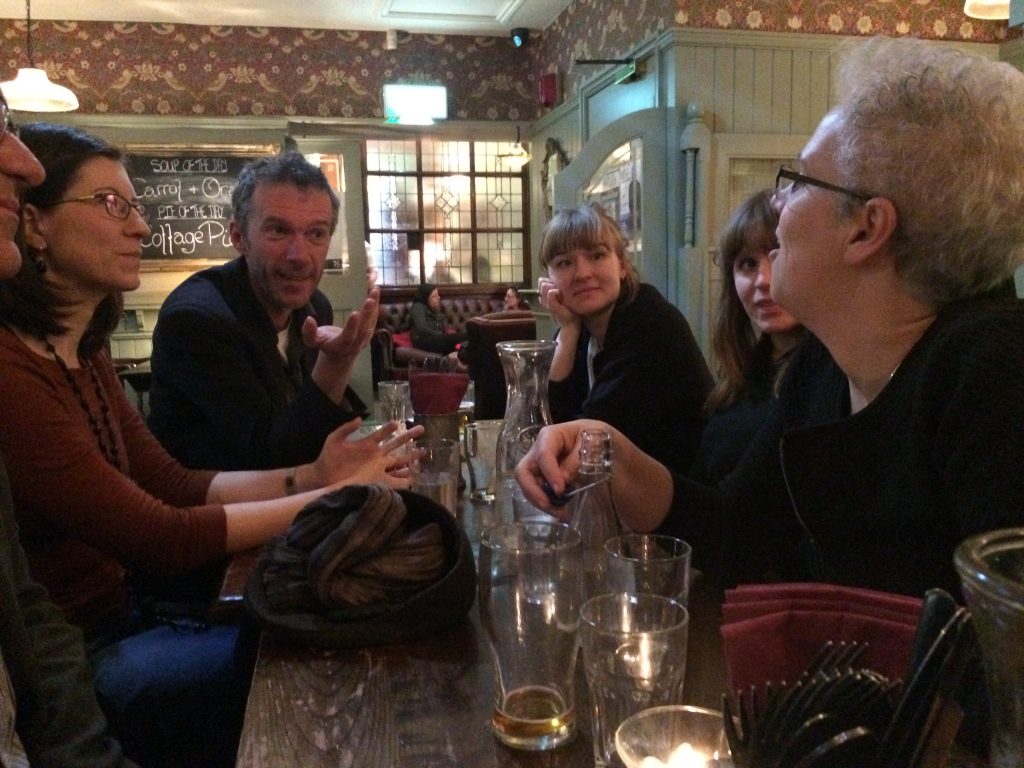
Very pleased to announce that the first symposium of the Lancaster-Ghent partnership will take place on March 23, 2017, at Lancaster University. The topic is “Discourse and Media”; it will feature talks by Lancaster and Ghent staff and students. Participation is free (and includes lunch and coffee break), but registration via Eventbrite is required. Click here to register. If you have questions about the event (or about the new partnership with Ghent), please send me an email (p.rebuschat@lancaster.ac.uk).
I am grateful to the Faculty of Arts & Social Sciences (FASS) Internationalization Fund for the financial support.
For more information, including the schedule and abstracts, please click here.
Very pleased to announce that the Department of Linguistics and English Language has established a new partnership with the Department of Linguistics at Ghent University, and that I will be coordinating this exciting initiative.
Our Departments are particularly well-matched in terms of research areas, ambition, size (staff and students) and orientation (emphasis on empirical language research). This initiative will run for three years (2016-2019); during this period, we will explore joint research projects and potential teaching links, including co-supervision of postgraduate students. The partnership involves both academic staff and students from our institutions.
The cornerstone of our partnership are two annual delegation visits. Each delegation consists of 5-6 members of staff; there will be one Lancaster visit to Ghent every year and one Ghent visit to Lancaster. The host university will organize a symposium around each delegation visit and widely publicize the event. This means there will be six delegation visits (and symposia) in the 2016-2019 period. The first symposium takes place in Lancaster on March 23, 2017, with the second symposium taking place in Ghent in April 18-19, 2017.
In addition, to the annual delegation visits and symposia, there will several individual visits by staff members, and we will maintain an active student exchange program between our Departments. Our Erasmus+ agreements cover two undergraduate and postgraduate students per academic year.
For more information or to get involved, please email me (p.rebuschat@lancaster.ac.uk) or visit our dedicated website.

Um dia bem passado em óptima companhia – almoço-convívio PARSUK das regiões Northwest e Northern & Yorkshire, co-organizado com Pedro Lopes (Embaixador PARSUK Northern & Yorkshire).
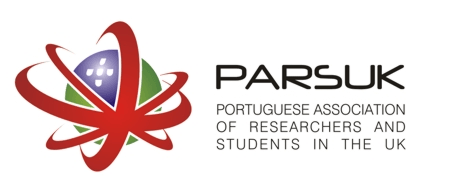

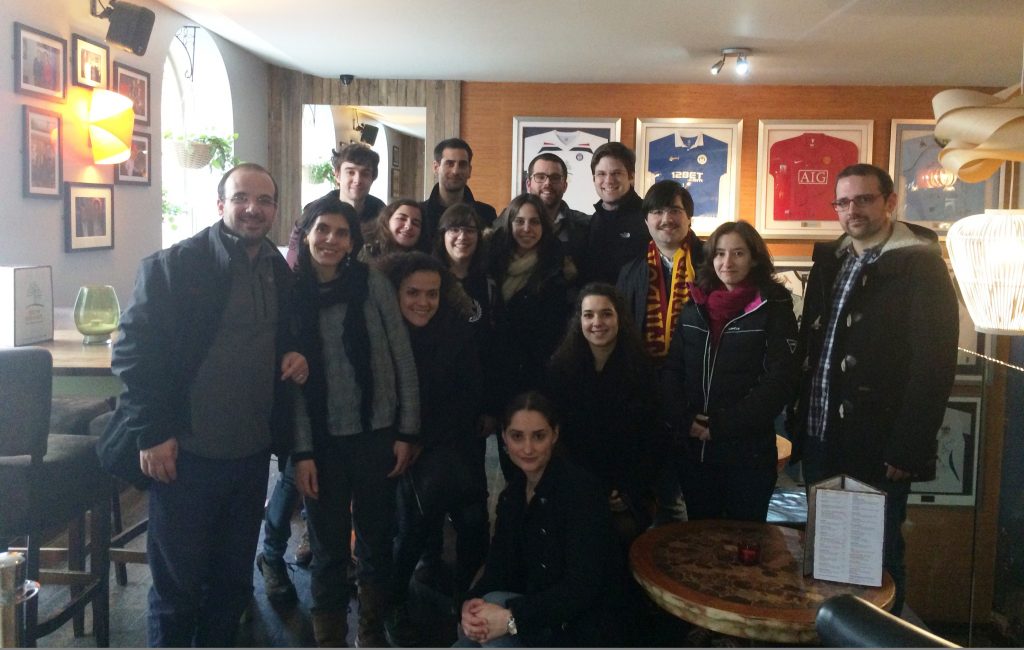
Today, we enjoyed hosting a large delegation of academics and students from Lausanne University, one of our partner institutions. The Lausanne delegation was led by Anita Auer and Jennifer Thorburn and brought over 20 undergraduate and postgraduate students to our Department. After a tour of the Phonetics Lab and of the brand new EEG lab, we had a chance to socialize over coffee and later at lunch. The visit concluded with visits to two of our classes. We look forward to returning the visit and to welcoming more visitors from Lausanne in the future!

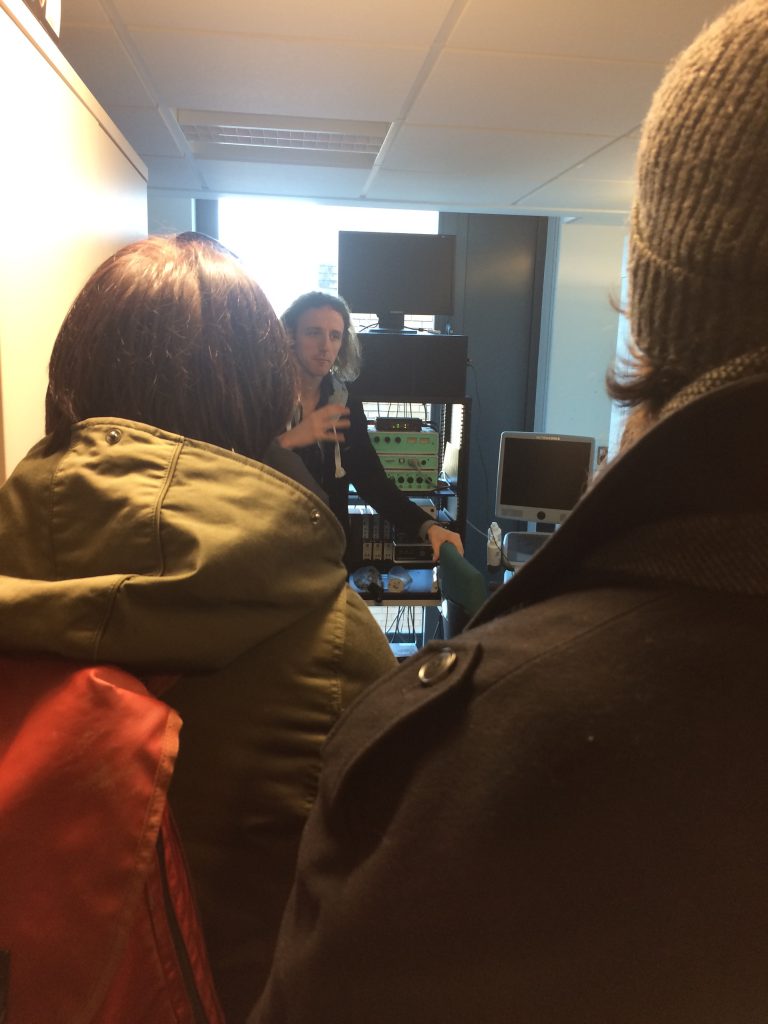

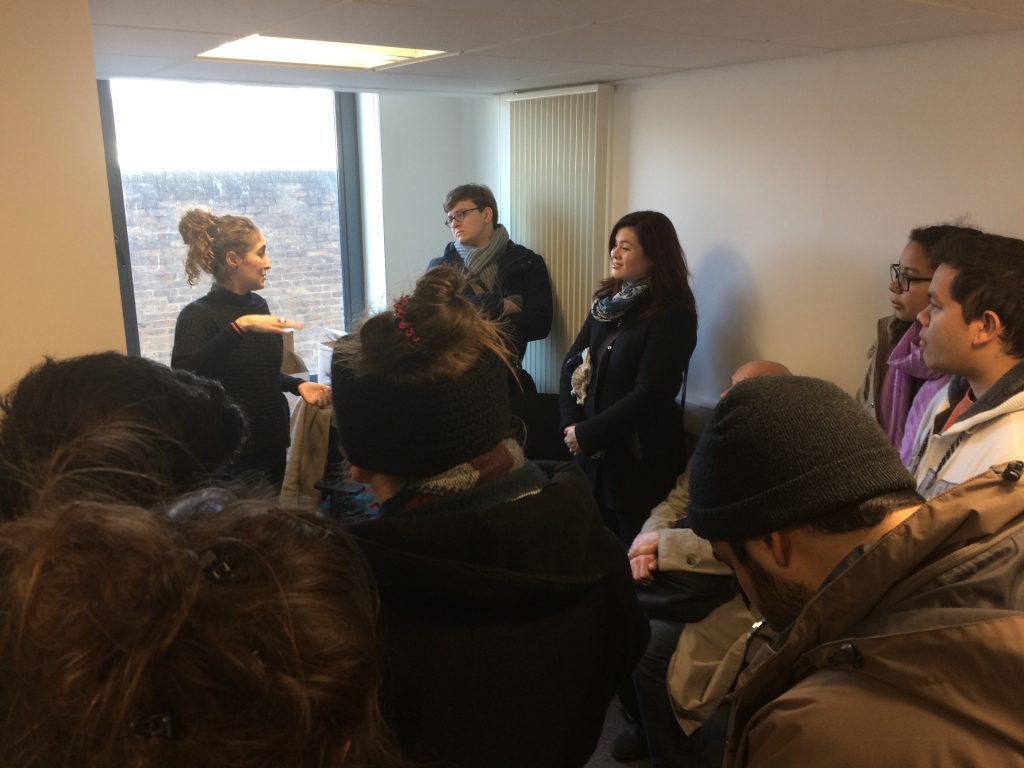
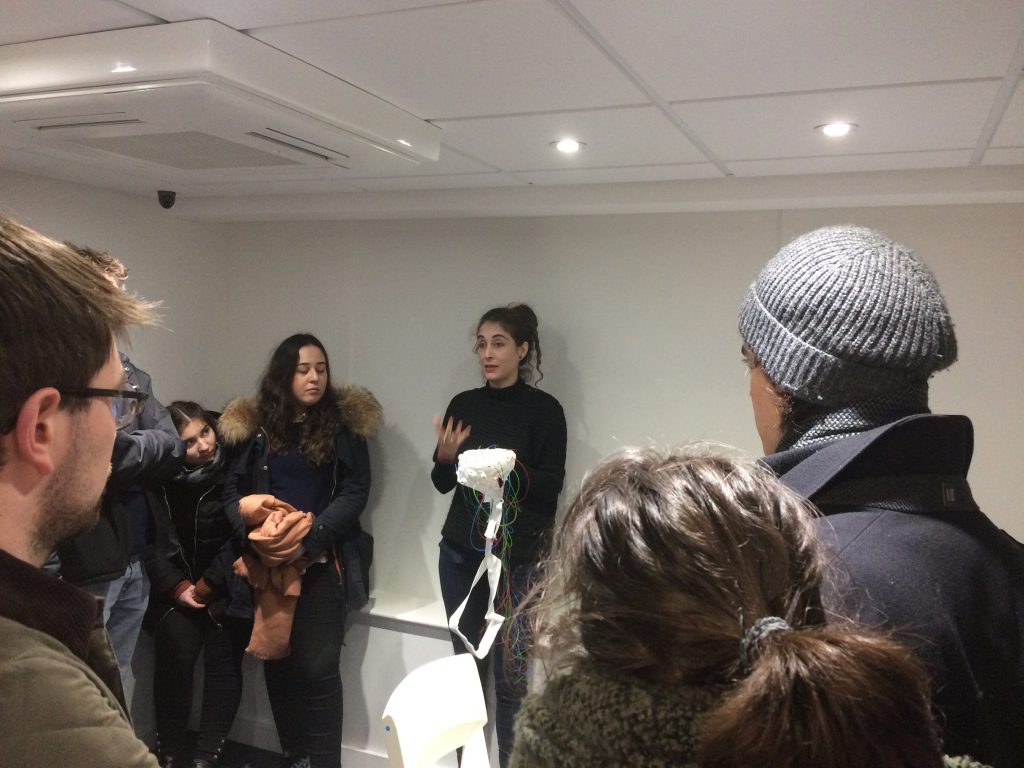
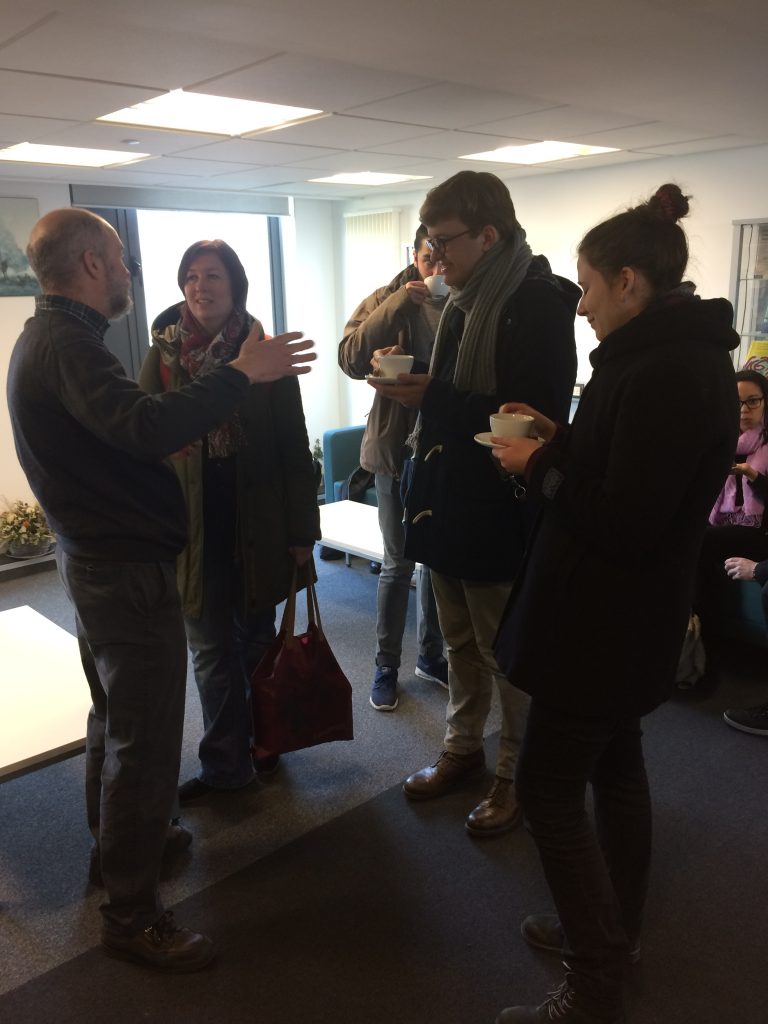
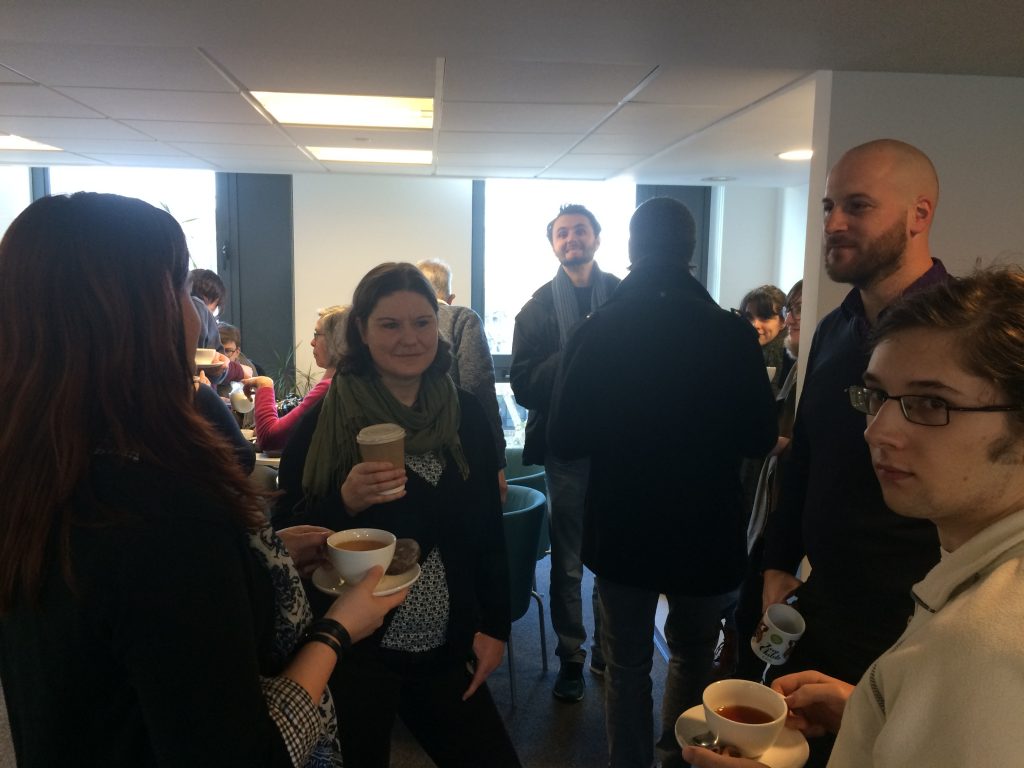
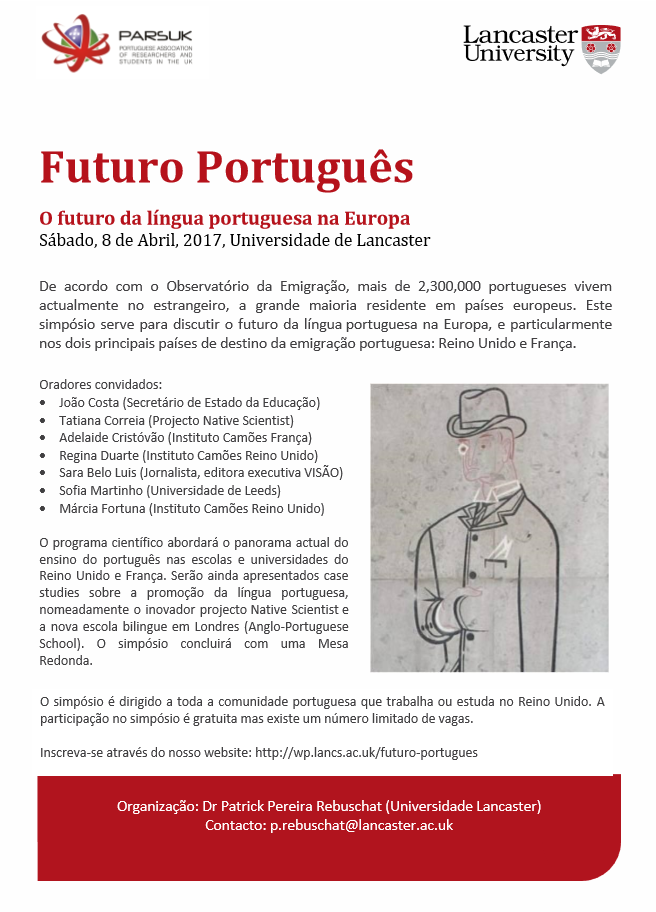
I am very pleased to announce the following event on the future of the Portuguese language.
Symposium: “Futuro Português – The future of the Portuguese language in Europe”
Lancaster, April 8, 2017, website: http://wp.lancs.ac.uk/futuro-portugues/
This symposium will bring to Lancaster policy makers, researchers, school teachers/directors as well as representatives of the Portuguese government to assess the current situation of Portuguese in schools and universities in the United Kingdom and France. The idea is to understand the situation of one particular language in detail, which will then allow us to expand to other languages in subsequent years.
Why Portuguese? Portuguese is spoken by 203 million people as a native language in Europe, South America, Africa and Asia, so it is not surprising that a significant proportion of immigrants in the Northwest of England speaks Portuguese at home. Surveys by the Office for National Statistics and the Department for Education indicate that, in some regions of the UK, Portuguese is the second-most frequent European language (after Polish).
Invited speakers:
The symposium will provide a snapshot of the current situation of Portuguese language instruction at the schools and universities. We will focus on both Portuguese as a Heritage Language and Portuguese as a Foreign Language. What are the current trends, what challenges are we facing? What impact will Brexit have? In addition, we will have presentations on particularly successful outreach and impact initiatives, namely the award-winning Native Scientist project and the new Anglo-Portuguese School, a bilingual school that will open in London in 2018. The symposium will conclude with a round table discussion, moderated by Sara Belo Luis, a well-known Portuguese journalist.
Participation in the event is free (and includes lunch and coffee breaks), thanks to the financial support of the Faculty of Arts and Social Sciences (FASS) Impact Fund, which we gratefully acknowledge. The event is a joint initiative of PARSUK (Portuguese Association of Researchers and Students in the UK) and FASS.
For questions, please emailp.rebuschat@lancaster.ac.uk.


For English version, please see here.
Simpósio: “Futuro Português – O futuro da língua portuguesa na Europa”
Lancaster, 8 de Abril, 2017 (sábado)
Website: http://wp.lancs.ac.uk/futuro-portugues/
De acordo com o Observatório da Emigração, mais de 2,300,000 portugueses vivem actualmente no estrangeiro, a grande maioria residente em países europeus. Este simpósio serve para discutir o futuro da língua portuguesa na Europa, e particularmente nos dois principais países de destino da emigração portuguesa: Reino Unido e França.
Oradores convidados:
O programa científico abordará o panorama actual do ensino do português nas escolas e universidades do Reino Unido e França. Quais são os trends actuais? Quais são os desafios para o futuro do português nestes países? Qual o efeito do Brexit? Serão ainda apresentados case studies sobre a promoção da língua portuguesa, nomeadamente o inovador projecto Native Scientist e a nova escola bilingue em Londres (Anglo-Portuguese School). O simpósio concluirá com uma Mesa Redonda.
A participação no simpósio é gratuita (e inclui almoço e coffee breaks) mas há um limite de 50 vagas. O evento é uma iniciativa da PARSUK (Portuguese Association for Researchers and Students) e conta com o apoio financeiro da Universidade de Lancaster.
Patrick Pereira Rebuschat (organizador)


© 2026 Patrick Rebuschat
Theme by Anders Noren — Up ↑